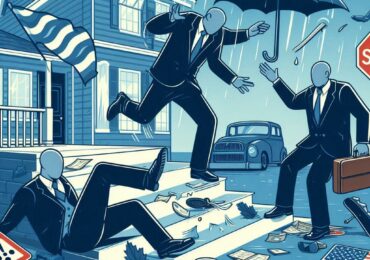Slip and fall accidents are more common than many realize, and they can have serious consequences for property owners and managers. When an individual gets hurt due to unsafe conditions on a property, it can lead to legal actions that impact property management laws. Property managers need to understand their responsibilities and how slip and fall cases affect them, especially when it comes to liability. If a case escalates, a fall accident lawyer may get involved to help determine fault and secure compensation for the injured party. In this article, we’ll dive into how these types of cases influence property management laws and what steps can be taken to minimize risk.
What Are Slip and Fall Cases?
Slip and fall accident cases occur when someone is injured after slipping, tripping, or falling on a property due to hazardous conditions. These accidents can happen anywhere, from grocery stores to sidewalks or even private homes. If the property owner failed to maintain a safe environment, the injured person may pursue legal action to seek compensation for their injuries.
Legal Responsibilities of Property Owners
Property owners have a legal duty to ensure their property is safe for visitors, tenants, and customers. This includes maintaining walkways, fixing hazards, and providing proper lighting or warning signs in risky areas. If a property owner neglects these responsibilities and someone gets hurt, they may be held liable for the injuries.
How Slip and Fall Cases Affect Property Management Laws
Slip and fall cases have a significant impact on property management laws, often driving changes in regulations and procedures. Here’s how these legal cases can shape property management practices:
Changes in Safety Requirements
As a result of slip and fall incidents, lawmakers may update safety standards to ensure greater protection for visitors and tenants. This can lead to stricter rules on things like flooring materials, stairways, and outdoor walkways to prevent accidents.
Increased Liability Awareness
Property managers become more aware of their potential liability after a slip and fall lawsuit. This awareness can result in more cautious and thorough safety protocols, such as regular maintenance checks and better training for staff on hazard prevention.
Impact on Insurance Policies
A rise in slip and fall cases often prompts insurance companies to adjust their coverage requirements or premiums. Property managers may need to secure more comprehensive insurance policies to safeguard against potential legal costs, which could impact their bottom line.
Greater Emphasis on Documentation
To defend against potential lawsuits, property owners and managers may begin to place greater emphasis on maintaining records of safety inspections and repairs. Proper documentation can be crucial in proving that the property owner took all necessary precautions to prevent accidents. A fall accident lawyer will also rely on documentation, so it’s a safe bet to have everything tracked.
Changes in Tenant and Visitor Relationships
As property management laws evolve, there may be shifts in how property managers communicate safety measures to tenants and visitors. Clearer expectations and better safety practices help ensure everyone is on the same page and reduce the risk of legal disputes.
Legal Considerations in Preventing Slip and Fall Incidents
Preventing slip and fall incidents starts with property managers staying proactive about safety and maintenance. Legal considerations include regularly inspecting the property, addressing hazards like wet floors or uneven surfaces, and ensuring proper signage is in place. By taking these steps, property owners can reduce their liability and protect both their tenants and visitors from harm.
Insurance and Liability in Protecting Property Managers
Insurance is crucial for property managers to protect themselves from the financial impact of slip and fall claims. Liability insurance can cover legal costs, medical expenses, and potential settlements if someone is injured on the property. Without proper coverage, property managers may face significant financial risks that could affect their business.
The Role of Documentation in Defending Claims
When it comes to slip and fall cases, having solid documentation can make all the difference in defending a claim. The role of documentation in defending claims is crucial for property managers, as it helps establish that proper safety measures were in place. Detailed records of inspections, maintenance, and repairs can provide valuable evidence in the event of a lawsuit. Without this documentation, it becomes much harder to prove that the property owner acted responsibly.
Impact on Tenants and Visitors
Slip and fall incidents can affect tenants and visitors in different ways, from physical injuries to emotional distress. For tenants, it may mean dealing with medical bills, lost wages, or even temporary relocation if the property is deemed unsafe. Visitors may also be entitled to compensation if they’re injured on the property, which could affect the property manager’s reputation and relationships with both tenants and customers.
Conclusion
In the end, slip and fall cases have a significant impact on property management laws and practices, making it essential for property owners to stay vigilant. By taking proactive safety measures, maintaining thorough documentation, and securing proper insurance, managers can reduce their liability and protect both tenants and visitors. Understanding the legal landscape can help property managers create safer environments and avoid costly legal battles down the road.
